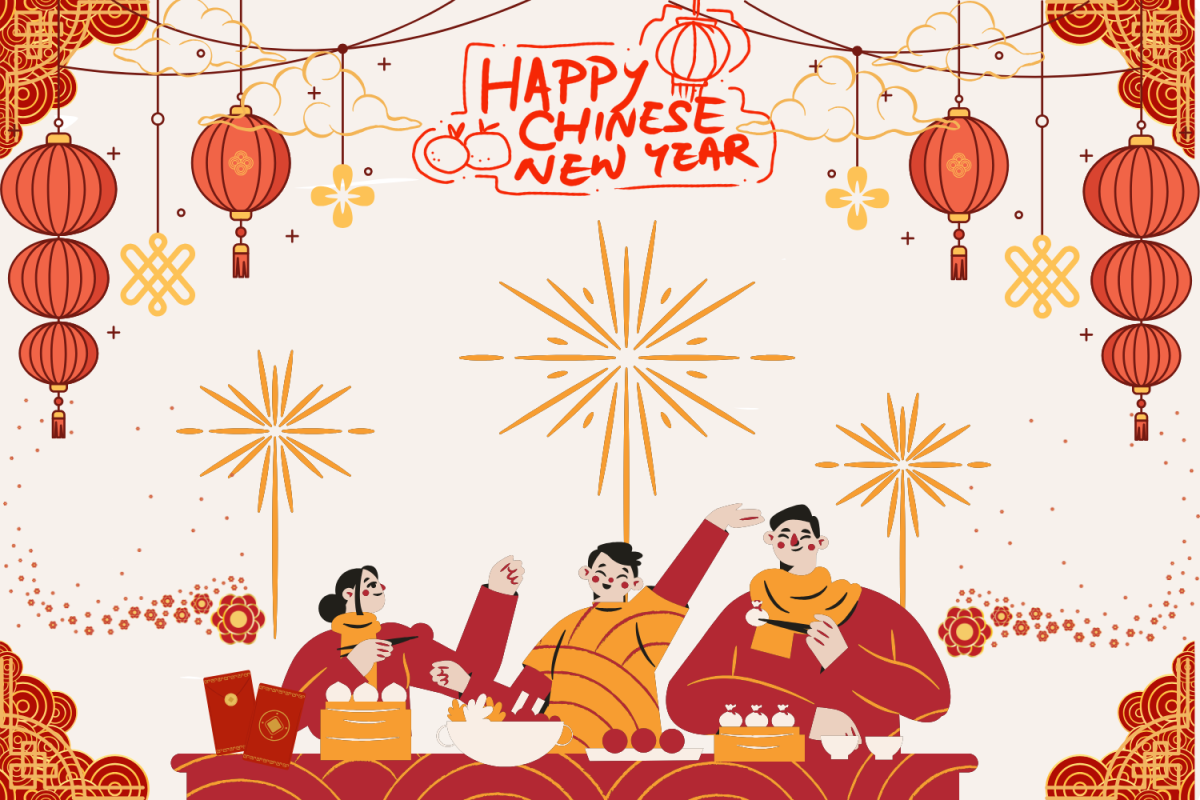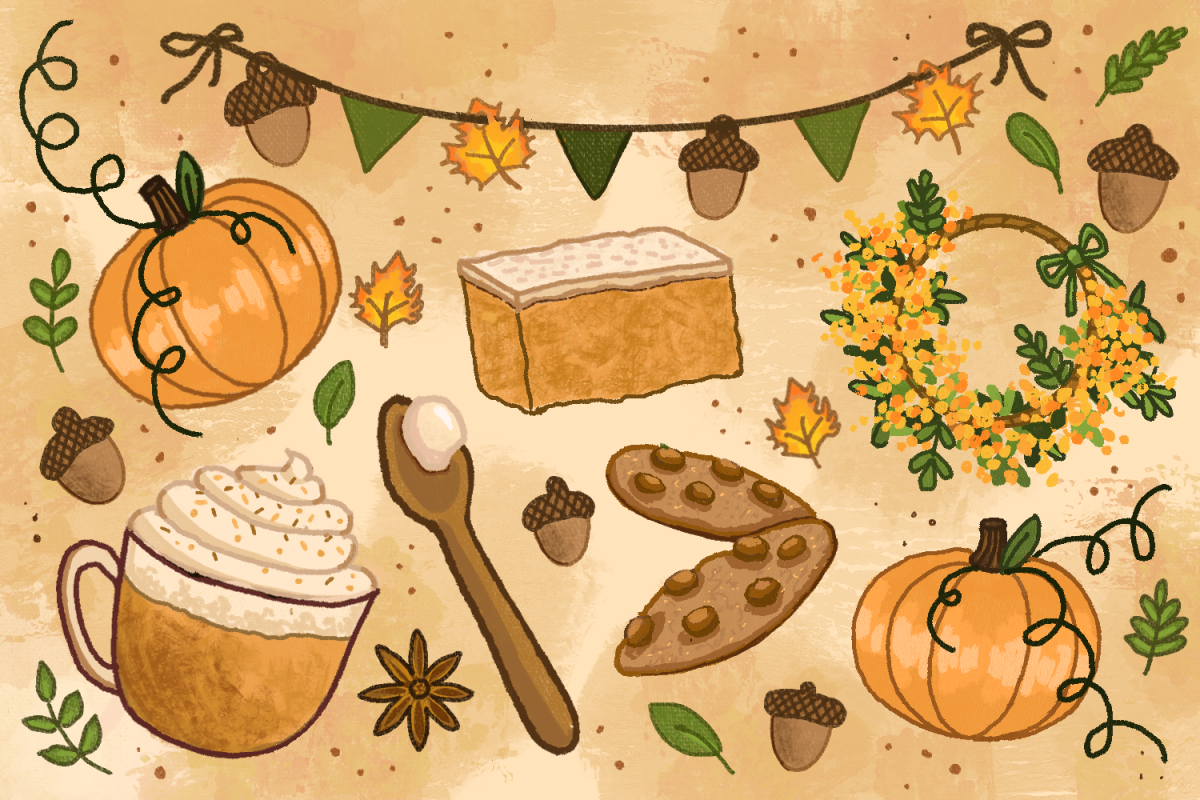Every new year comes with new beginnings. An upcoming holiday that may seem quite foreign to some cultures is Chinese New Year—the Chinese traditions of the Lunar New Year—a festival which celebrates the start of a new year on the traditional lunisolar Chinese calendar and occurs between Jan. 29 and Feb. 12 this year.
Different from the New Year’s that Americans celebrate, Chinese New Year has many traditions that follow. Such as, many typically wear red on Chinese New Year because it is believed in the culture to bring good luck.
Chinese culture focuses a lot on preserving and taking pride in Chinese traditions. Every beginning of a new year, it is tradition to pack red envelopes with money and hand them to children. There are plenty of fireworks, firecrackers, decorations, and superstitions; one of Chinese New Years’ legends is that a monster, “Nian,” would attack villagers at the beginning of every new year. Nian was afraid of loud noises and bright colors, especially red, and these things were used to chase the beast away.
“Every new year, my parents hand out red envelopes to all the kids and I get one too; I like to celebrate with money, because I think it means I’ll be rich for the entire year. Also, the fireworks are always stunning, it’s nice to be surrounded by fun and noise,” said junior Isabella Chan.
Another way to celebrate is being a part of the audience for the dragon and lion dance. In Chinese culture, the lion symbolizes strength, stability, and superiority, whereas the dragon portrays power, boldness, and excellence. The dance that consists of these creatures wards off evil spirits and welcomes prosperity, good luck, and blessings. The Arboretum in Arcadia performs the dragon/lion dance annually, along with other activities to celebrate and officially welcome in the Chinese New Year.
“I remember last year I attended this lantern festival with my family, and it was really fun; the food was great, and the lion dance was absolutely phenomenal. I’ve never seen such a vibrant crowd before, the dancers themselves are energetic and genuinely seem to like dancing for the festival—I think I want to try lion dancing myself, seeing how happy they look!” said Chan.
Chinese New Year has a lot of symbolic dishes that are eaten for good luck or so that the new year will bring the consumer something specific that they want. These foods can be found at many Chinese restaurants in Arcadia—like Yang Chow or Meizhou Dongpo Restaurant—even cooked at home: noodles for a long and prosperous life, steamed fish for abundance, citrus fruits like tangerines or oranges for good fortune, sweet rice balls for unity, and more. Golden spring rolls are eaten for prosperity in new beginnings, and the ingredients used to make them, like cabbage or carrots, represent growth and abundance. As for the foods to avoid for bad luck, many do not eat meat as it’s considered taboo to kill animals on the first day of the new year. Generally, foods that are pronounced similar to death or bad luck in Mandarin are avoided.
“I really like Chinese New Year; it’s not my culture, but I enjoy learning more about it. Especially the food though; I love going to my friend’s house because his family celebrates it, and the mooncakes are my favorite,” said freshman Richard Delgado. “I think Chinese food is underrated, especially their chow mein with vegetables; it’s healthy and tastes delectable.”
It is common to burn incense in Chinese culture or provide certain items to the deceased, like burning something your ancestors may need to use in the afterlife. Ancestors are believed to protect their family, which is why it is significant to honor them each new year. Family reunions are, like any other holiday, prioritized over all. It is important to reunite with family and have dinner together, to celebrate the old endings and embrace the new beginnings together.
“My family burns incense and cooks dishes like steamed vegetables or boiled shrimp dumplings to honor our ancestors. My grandma believes in burning things that our ancestors may need to use in the afterlife, so she sets a pot of fire, then throws in things to burn—it’s destroying it to transfer for our ancestors to use in the afterlife like money and stuff,” said freshman Nathan Chen.
Chinese New Year is about starting over, beginning anew with nothing but luck. A long year carries lots of things, like bad luck. Each year, cleaning is done to ensure that one is freed of bad luck. It’s like sweeping bad fortune out the door! From your clothes to your room, you should decorate with red and replace old things with newer ones. This allows room for blessings and prosperity to be welcomed.
“Every-time it’s the new year, my family always likes to clean out our house and buy new things like clothes or toys. They believe in starting over, even in our daily use items,” said freshman Xiaoxiao Lu.
Chinese New Year prioritizes the good over everything. It’s absolutely unacceptable to utter any words that are related to negativity; no words that imply death, illness, or injury are to be spoken during the time of the new year. This is believed to be a bad start to the year, bringing you an entire year of bad fortune.“I’m proud of my culture. Chinese New Year is something that I always enjoy because I love my family, my people, and simply being proud of what I am,” says Lu. “It’s the perfect holiday, time with family and friends, good food, and the best part is—you get money!”
There are many ways to celebrate Chinese New Year, so don’t be shy. Even if it isn’t your culture, it doesn’t hurt to try new things, because every new beginning has something different to offer. Also, sweet rice balls are the best!







